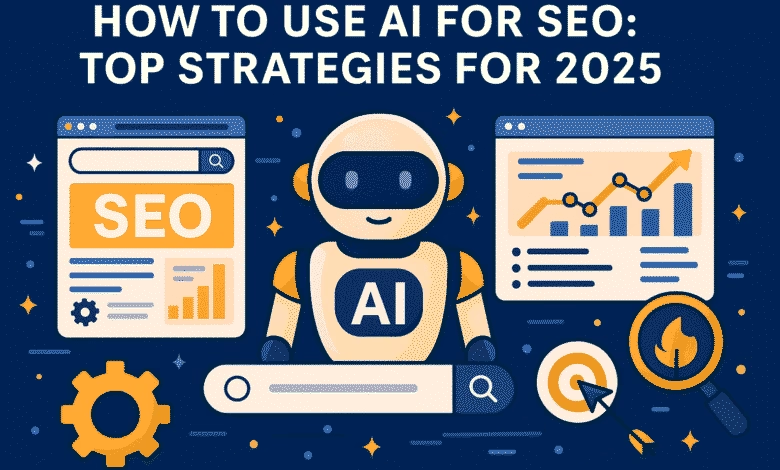How to Use AI for SEO: Top Strategies for 2025

In 2025, AI is revolutionizing search engine optimization (SEO), empowering businesses to enhance their online presence more efficiently than ever. With search engines like Google increasingly prioritizing user intent and content quality, AI SEO tools offer a competitive edge by automating tasks, analyzing data, and personalizing strategies. Marketers using AI for SEO report a 30% improvement in organic traffic, according to recent studies. This how-to guide explores the top AI-driven SEO strategies for 2025, helping you optimize your website, attract more visitors, and rank higher on search engine results pages (SERPs).
1. AI-Powered Keyword Research
Find High-Impact Keywords Faster
Keyword research remains the foundation of SEO, and AI tools like SEMrush and Ahrefs are taking it to the next level in 2025. These tools use AI to analyze search trends, predict keyword performance, and uncover long-tail keywords that match user intent. For example, SEMrush’s Keyword Magic Tool can suggest related terms and questions based on your niche, helping you target what your audience is searching for. To implement this strategy, input your primary keyword into an AI tool, filter for low-competition, high-volume terms, and integrate them naturally into your content.
2. Content Generation with AI
Create SEO-Optimized Content Efficiently
AI SEO tools like Jasper and SurferSEO make content creation faster and more effective in 2025. Jasper uses AI to generate blog posts, meta descriptions, and landing page copy that align with SEO best practices, while SurferSEO provides real-time optimization suggestions based on top-ranking pages. For instance, SurferSEO can analyze your competitors’ content and recommend the ideal word count, keyword density, and headings. To use this strategy, draft your content with Jasper, then optimize it with SurferSEO to ensure it ranks well for your target keywords.
3. Voice Search Optimization
Target Conversational Queries with AI
With voice search on the rise—over 50% of searches are expected to be voice-based by 2025—optimizing for conversational queries is crucial. AI tools like AnswerThePublic help identify questions and phrases users ask via voice assistants like Siri or Alexa. For example, instead of targeting “best coffee shops,” you might optimize for “What are the best coffee shops near me?” Use AI to analyze these queries, then create FAQ pages or blog posts that directly answer them, incorporating natural language and structured data for better visibility in voice search results.
4. AI-Driven On-Page SEO Analysis
Optimize Pages with Precision
On-page SEO is more data-driven in 2025, thanks to AI tools like Clearscope and Yoast SEO with AI enhancements. Clearscope analyzes top-ranking pages for your keyword and provides a content grade, suggesting terms to include and areas to improve. Yoast SEO, now with AI features, offers real-time feedback on readability, meta tags, and internal linking. To apply this strategy, run your page through Clearscope to identify gaps, then use Yoast to fine-tune elements like title tags and alt text, ensuring your page is fully optimized for search engines.
5. Predictive Analytics for SEO Performance
Anticipate Trends and Adjust Strategies
AI SEO tools like BrightEdge use predictive analytics to forecast SEO trends and user behavior in 2025. BrightEdge can predict which keywords will gain traction in your industry, allowing you to create content ahead of the curve. It also tracks your site’s performance and suggests adjustments based on algorithm updates. To leverage this, monitor BrightEdge’s insights regularly, focus on emerging keywords, and update older content to maintain rankings. Predictive analytics ensures your SEO strategy stays proactive rather than reactive.
Best Practices for Using AI in SEO
While AI SEO tools are powerful, they work best when paired with strategic oversight. Start by setting clear goals—whether it’s increasing organic traffic or improving click-through rates—and choose tools that align with those objectives. Avoid over-optimization; AI suggestions should enhance, not dictate, your content’s quality and authenticity. Regularly audit your site’s performance using AI analytics, and stay updated on search engine algorithm changes, as AI tools can help you adapt quickly. Finally, prioritize user experience—AI should support, not replace, creating valuable, engaging content for your audience.
Ready to elevate your SEO game with AI? Implement these strategies and visit BytesWall Media for more tips to dominate search rankings in 2025!
